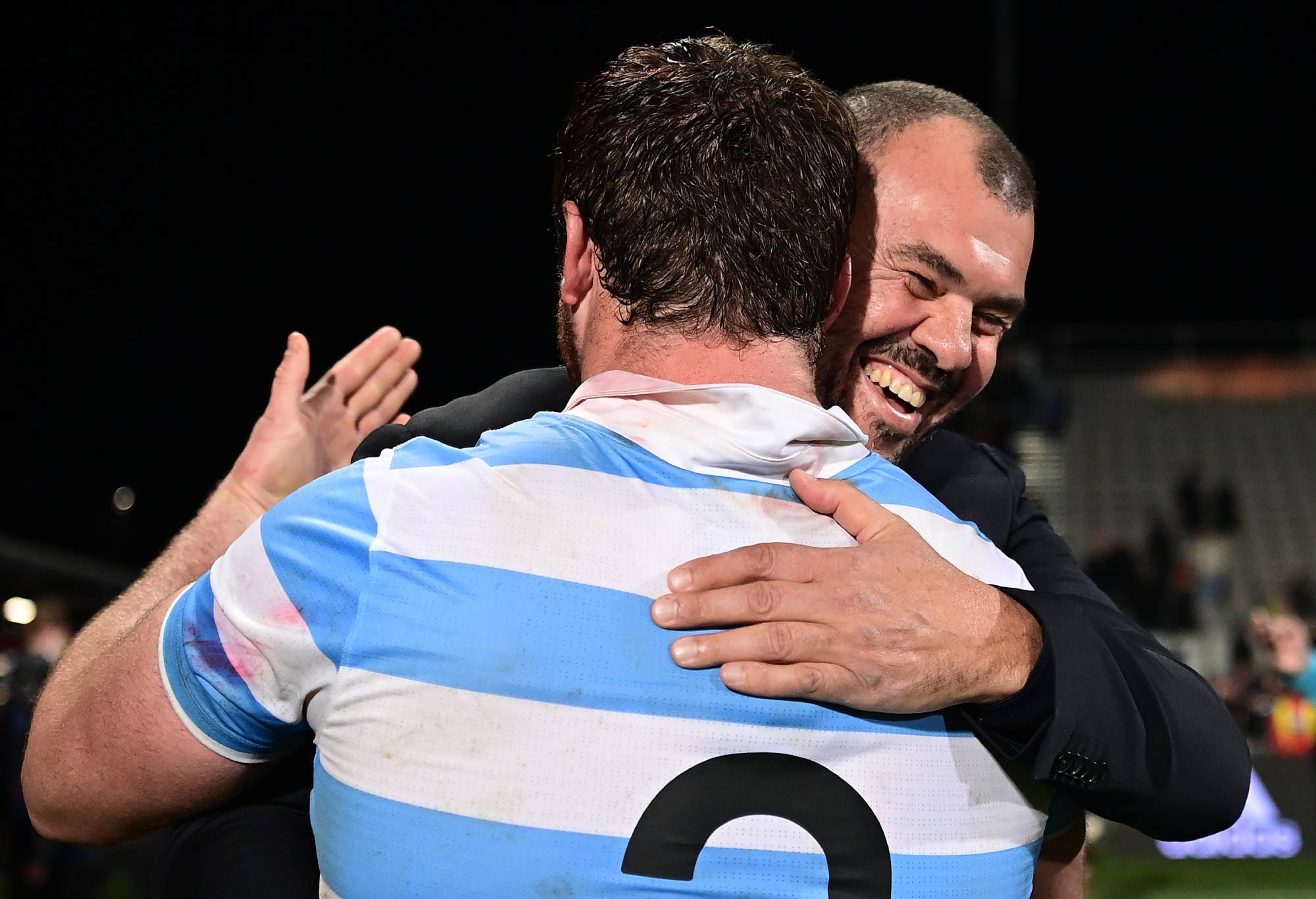
Cheika, who left the Wallabies after the 2019 World Cup exit, joined Brett McKay and Harry Jones on The Roar Rugby Podcast this week, to reflect on his success in Argentina so far, and his thoughts on the future. You can stream the episode in the player below, or follow on your preferred podcast app.
Cheika is clearly loving his time with Los Pumas, and the particular challenge he faces there with a unique approach to his coaching stable and players who play club rugby in the northern hemisphere but internationals in the south, so it’s no wonder he’s not looking beyond the 2023 RWC.
But while he continues to succeed, and Australia decides what comes after Dave Rennie takes the Wallabies to France, there will be those who would like to see Cheika return.
“This has been unreal. It’s energised me. It’s a challenge,” Cheika said of his time in Argentina.
“I know it sounds corny, but I love that. I enjoy creating things and trying to get teams to be successful and helping them get back up off the ground when they’ve been unsuccessful.”
As far as what the future holds, he adds: “I’ve never been huge on planning as far as that’s concerned. If I do well and I still enjoy it and I can do well, I’ll keep doing it and see what happens. I’ve been very focused on getting this right for the guys here.
“I’ve got a lot of friends that are connected into the Argentina world so I want to do well for them, want to do the best I can.”
Asked if he might be coaching at the 2027 World Cup, perhaps even for Australia on home soil, Cheika said: “That’s so far away it’s not funny.
“I just want to enjoy what I’m doing now. I’ve never been a sort of person who will orchestrate for the future.
“Inside the team there’s definitely planning, and inside my business yes, but I don’t feel like I need to do that for myself because what you do every day will lead to what happens tomorrow. Invest in what’s happening now and the rest will look after itself.”

Pumas head coach Michael Cheika hugs Julian Montoya of the Pumas after winning The Rugby Championship match against the All Blacks. (Photo by Hannah Peters/Getty Images
“Every time I ring my kids, they’ve always got a Wallaby jersey on,” Cheika said. “Now I look at the team with a different set of eyes. You never know what could happen at the World Cup so you have to be ready mentally for those confrontations.
“I’m happy they beat South Africa. I’m not scared to say that but I’m the Argentinian coach.
“And obviously, when that time comes, I’m 100% Argentinian but I’m an Aussie and want them to do well, just not when they play us.
“I’ve got a lot of good friends still in that team and guys, I’ve spent a lot of time with. From day one, since I left. Australia. I’ve always tried to be supportive.
“I’ve always tried to say the right thing when I’m doing the commentary because I genuinely feel that way. That’s why the last couple games were a bit strange to me.
“But I enjoy it with the Argentinian guys. They’re good fellas.
“Do I want Australia to do well? My kids came down to the game in San Juan and they were struggling because they didn’t know who to support. I just tell them to do whatever they want. My youngest is a massive Hoops fan. Hoops wasn’t playing so that swung him over to Argentina.”
New Zealand’s struggles and Australia’s latest win over South Africa have many Aussies dreaming of an end to the Bledisloe drought. Cheika laughed when he was asked if he was one of them.
“I can’t be doing that! I can’t be dreaming about other teams winning trophies,” Cheika said. “If they do it, that’s good. But I won’t be dreaming about it.”
Cheika also reveals how he is preparing the Pumas mentally for a massive challenge this weekend, having shocked the All Blacks last time out, his thoughts on Michael Hooper and the stress of big time rugby, and how he looks at his coaching and commentary gigs.
“I’ve never considered myself a career coach,” he reveals. “It’s like do your best and see what happens next and if you’re enjoying that… I don’t consider it a career. I’ll be honest, I don’t even consider it as work. It’s coaching footy.
“I’m being honest. There are people out there doing real jobs. Coaching footy is not a real job. It’s time consuming and it’s got all that stuff. But it’s great fun.”

Leave a Reply